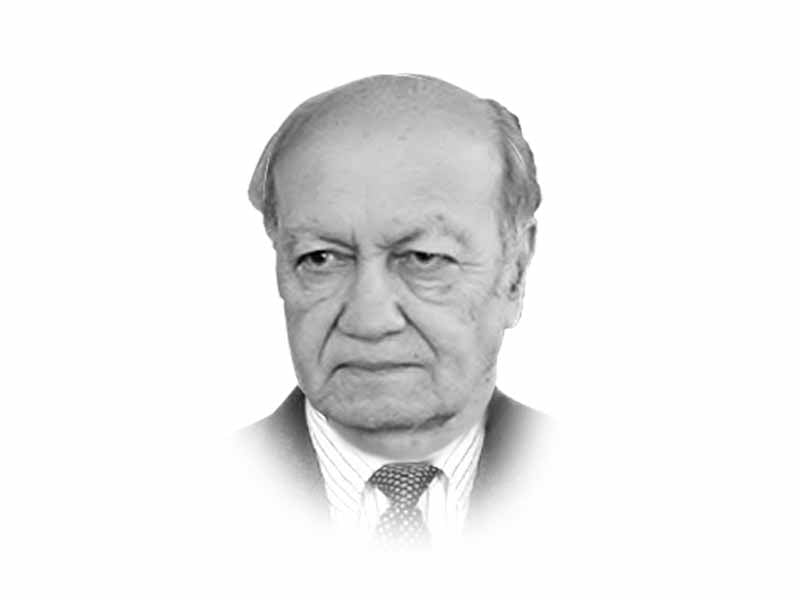
Strong bonds of history, culture, ethnicity and religion bind landlocked Afghanistan with Pakistan and it is only logical to develop converging and mutually supportive policies. What is surprising is why it took that long to discard the mutually destructive policy that was being pursued in the past? Both countries share the blame. Hamid Karzai’s frequent ungracious and unfair remarks and attitude towards Pakistan was meant to externalise Afghanistan’s myriad problems and to pose as a great nationalist and unifier. Let us, however, inject caution in our expectations from these developments. The grip of President Ghani on power is still tenuous and he relies on political groups and power centres that are not fully aligned with his policies. The future of Afghanistan’s stability is still not certain, although this development should contribute towards Afghanistan’s internal consolidation.
Pakistan’s current policy has been dictated by its realisation that if it were to succeed in fighting its internal existential battle, then it will have to change its policy of supporting non-state actors and developing a strong and stable relationship with Afghanistan. The priority has shifted to state-to-state relations and the Pakistan military is cutting itself loose from non-state actors like Hafiz Gul Bahadur and the Haqqani network. With the Taliban too, it no more favours the same coziness and is nudging them to enter into a negotiated settlement. In the emerging strategic scenario, the Taliban are treated more as a reality than an asset and the military is not interested in their supremacy. It also believes that the resurgence of the Taliban with antediluvian characteristics will encourage and strengthen the TTP. Islamabad’s primary interest lies in making efforts to integrate the Taliban into the Afghan polity and facilitate an equitable power-sharing arrangement that harmonises with the current democratic structure. Civil war in Afghanistan will spill over the border and be highly detrimental to Pakistan’s security. To what extent will Pakistan’s efforts succeed depends on the flexibility of the protagonists. As of now, the Taliban, appreciating that the US and Nato forces have thinned out, would like to break the operational stalemate and prefer intensifying the insurgency and test cohesiveness and battle competence of the Afghan army. Simultaneously, they may agree to talks and reactivating the Qatar process while keeping the insurgency alive. The speculation about talks between the Taliban and the US, and between the Afghan government and the Taliban next month gained credence when the Americans removed the Taliban from their list of terrorists and designated them as an insurgency. The new Pentagon chief has also alluded to the possibility of extending the troop withdrawal for a year in the backdrop of heavy Afghan forces casualties. Interestingly, all options are being kept open and strong signals of resolve are emanating from both sides.
There are clear indications that China has enhanced its role in Afghanistan and is making efforts at bringing the Taliban to the negotiating table. It realises that as US forces withdraw, insurgency in Afghanistan would step up, which could then link up with their own East Turkistan Islamic Movement creating unrest in its Xinjiang province. The recent visit of the Taliban leader to China is an indication of the importance of the emerging role of China in the vacuum created by the departure of the bulk of US forces. Beijing would, however, never involve itself militarily in Afghanistan but would like to play an important role in its economic development and political stability. China has invested nearly $4 billion in Aynak copper mines and other geological projects and is providing $300 million of annual assistance. Interestingly, China’s industrial appetite for raw materials is so great that it has invested across the globe spanning Latin America, Africa, Australia and Central Asia.
India with its $2 billion aid to Afghanistan has been its largest donor. India and Afghanistan have traditionally maintained very close relations and which during Karzai’s presidency gained further momentum when the two countries signed the Strategic Partnership Agreement in 2011. The importance of this agreement has been reduced due to Afghan President Ghani’s broader regional perspective. Afghanistan, being a landlocked country, has suffered from an inherent insecurity against Pakistan and has tried to countervail it by getting closer to New Delhi. With improved relations with Pakistan these fears are likely to be allayed in due course. Economic, security, commercial and cultural ties bind India and Afghanistan. President Ghani is likely to continue maintaining and strengthening this relationship but will nuance it to remain sensitive to Pakistan’s concern.
Afghanistan and Pakistan, as President Ghani has said, have opened a “new book” in their relations. The emerging clarity in strategy and the unity in effort that is being demonstrated by both sides to facilitate peace and stability in the region gives hope and is cause for guarded optimism.
Published in The Express Tribune, February 25th, 2015.
Like Opinion & Editorial on Facebook, follow @ETOpEd on Twitter to receive all updates on all our daily pieces.













COMMENTS (3)
Comments are moderated and generally will be posted if they are on-topic and not abusive.
For more information, please see our Comments FAQ